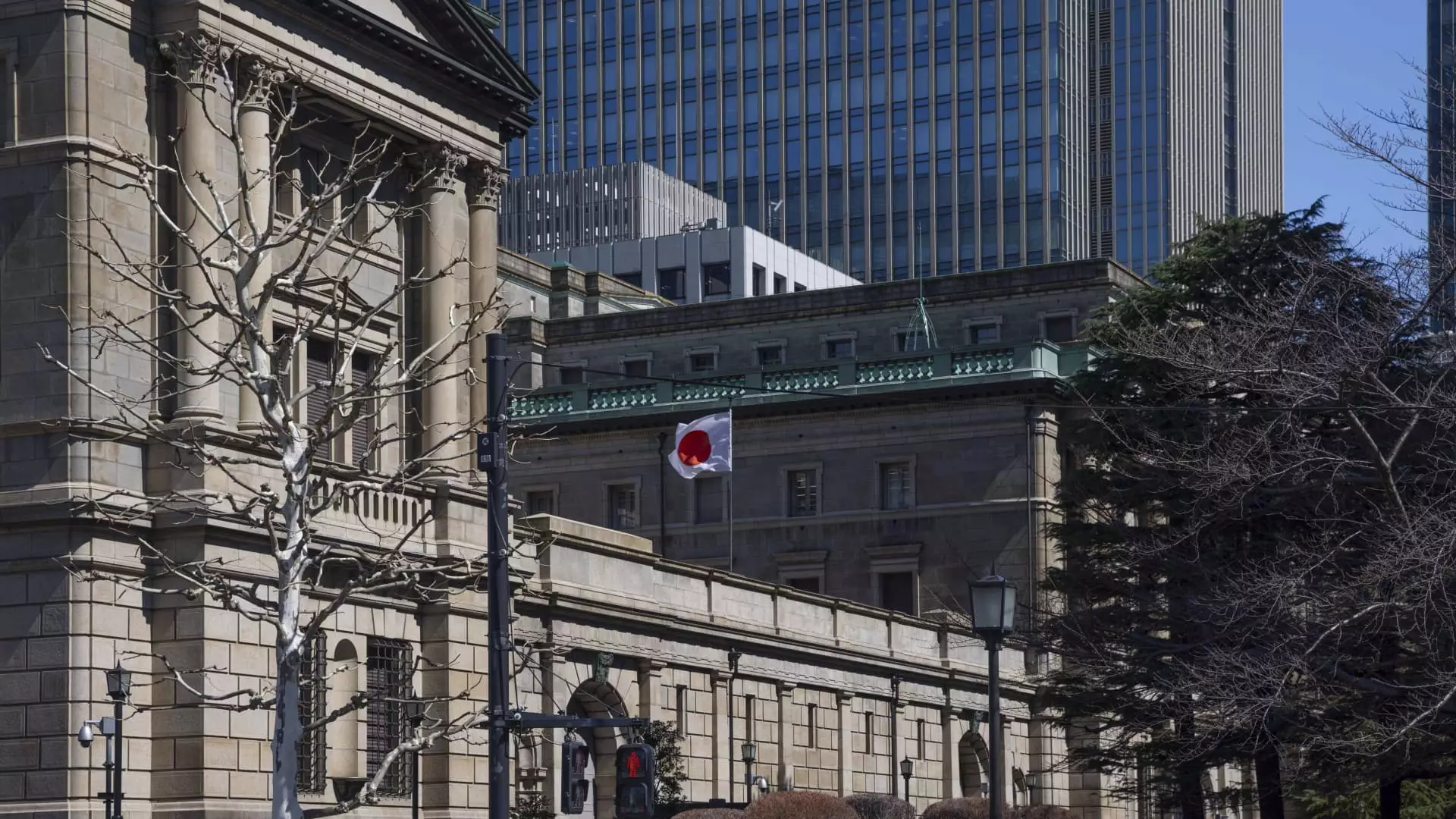Japan is undergoing a turbulent economic phase, with the depreciation of the yen creating a whirlwind of challenges for households and businesses alike. This moment of vulnerability demands a reevaluation of Japan’s fiscal strategies, pushing the need to not merely react to economic pressures but to proactively fortify the country’s industrial prowess. Under the guidance of Itsunori Onodera, the chair of the Liberal Democratic Party’s Policy Research Council, a call for strengthening the yen echoes through the halls of policy-making. The painful truth is that overreliance on a weak currency has delivered a double blow; while it has rendered exports seemingly advantageous, it has simultaneously inflated the cost of living for ordinary citizens.
The Politics of Currency Policy
Onodera’s assertion that Japan must refrain from using its substantial U.S. Treasury holdings as a bargaining chip against tariffs demonstrates a thoughtful restraint in diplomatic relations. Such a tactic could not only destabilize Japan’s economy but also undermine its alliance with the United States. It’s a delicate balancing act, yet it signals a broader need for a coherent currency policy that aligns with both domestic stability and international respect. Some critics may argue that in the world of high-stakes negotiations, Japan should be more aggressive, but the long-term risks of sabotaging a crucial ally outweigh the short-term tactical gains.
Inflation on the Rise
The weak yen is increasingly cited as a primary catalyst for rising prices. Onodera’s comments place responsibility firmly on policymakers, implying that addressing currency weaknesses must go hand-in-hand with bolstering the economic environment for Japanese companies. Japanese businesses, still recovering from pandemic-induced slowdowns, require more than favorable exchange rates to thrive; they need innovation, sustainable practices, and a workforce equipped for the challenges of tomorrow’s economy.
Despite the current pressures, it’s vital to acknowledge the historical context; Japan’s economy has navigated through stormy waters before. Nevertheless, the challenge remains: how can the government strike a balance between maintaining competitiveness and warding off inflation? If left unaddressed, this issue could spiral into a crisis of confidence, leading to decreased spending and suppressed consumer morale.
Interest Rate Dilemma
One critical aspect of Japan’s economic strategy lies within the purview of the Bank of Japan (BOJ). Their ultra-loose monetary policies have kept interest rates at rock-bottom levels far longer than many deem prudent. The current scenario raises alarms not only over inflation but also the world’s reaction to Japan’s seemingly nonchalant approach to interest rates. As the Federal Reserve increments its rates, Japan appears caught in a monetary slow dance, leaving analysts perplexed about the implications.
Market players are keenly aware that an escalation in interest rates may be necessary to retain currency stability and encourage savings, yet it must happen cautiously. The landscape is complicated but definitive action is urgently required before the vulnerability of the yen leads to irrevocable economic consequences. Japan’s hesitation may be perceived as complacency; a misstep that feels particularly distressing amid a global climate of shifting currency values.
The Essence of Economic Sovereignty
Tensions surrounding currency manipulation claims can be seen as an encroachment on Japan’s economic sovereignty. As external pressures push for currency adjustments, Japan stands at a crossroads. Should it yield to international demands, or should it stake its ground, guided by principles of self-determination and long-term strategic interests? It is a dilemma that has far-reaching ramifications; the longer the yen remains weak, the louder the calls for intervention will grow. Economic autonomy is a cornerstone of national prosperity, and Japan must remain vigilant in protecting that sovereignty against predatory practices.
In these times of uncertainty, the way forward hinges on innovative economic strategies that emphasize resilience rather than reaction. The Japanese market has long been painted as an export-dominant economy, but embracing technological advancement and sustainable practices could redefine its fiscal landscape. As the country grapples with these multifaceted challenges, there’s a pressing need to construct an adaptive, forward-looking approach that prioritizes the well-being of its citizens over transient currency metrics.



Leave a Reply